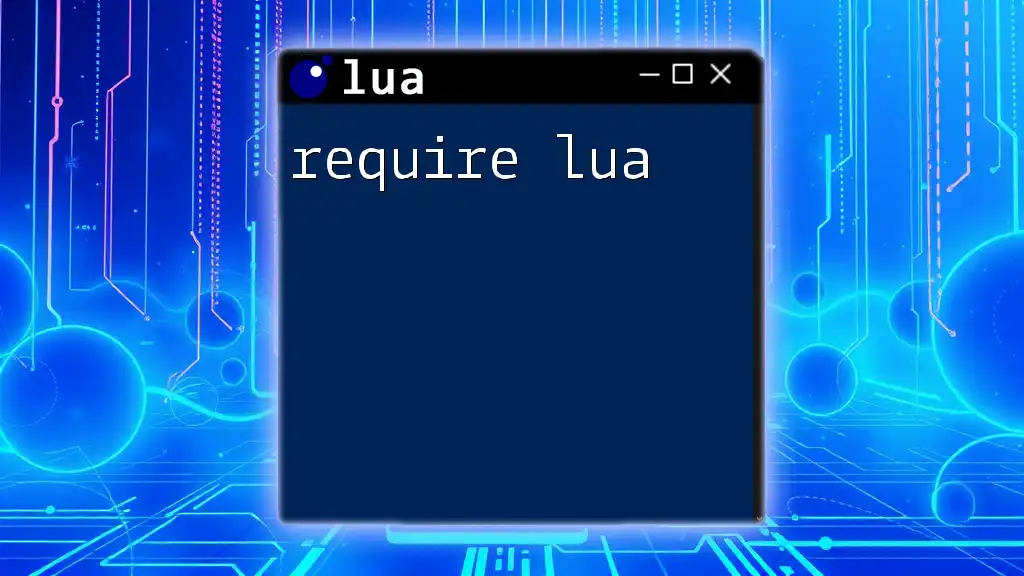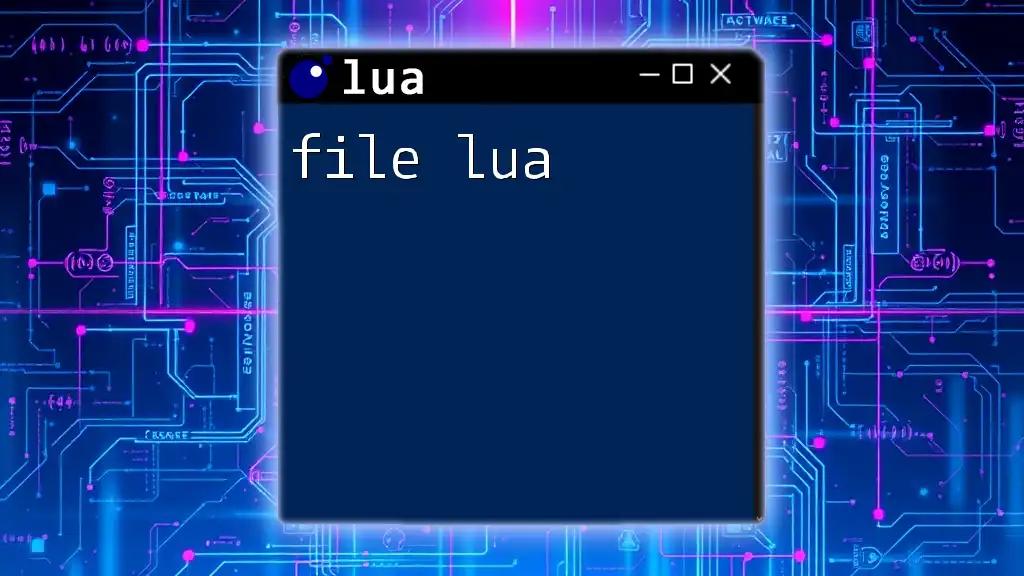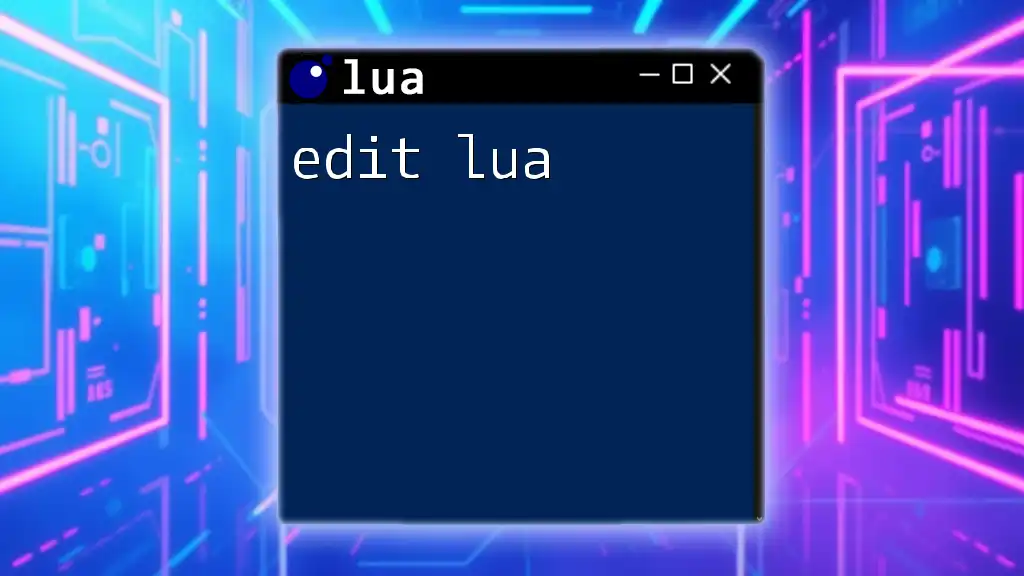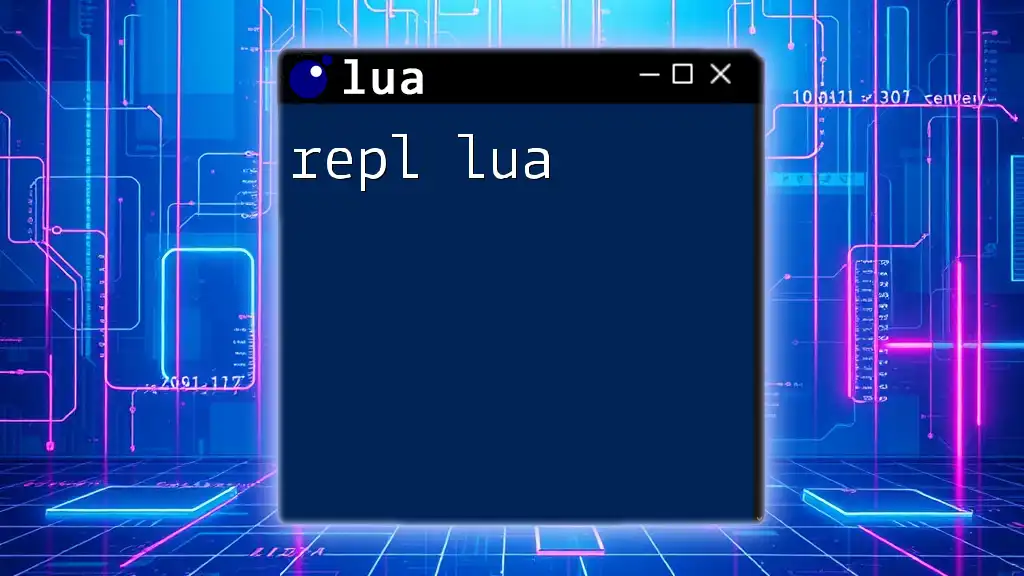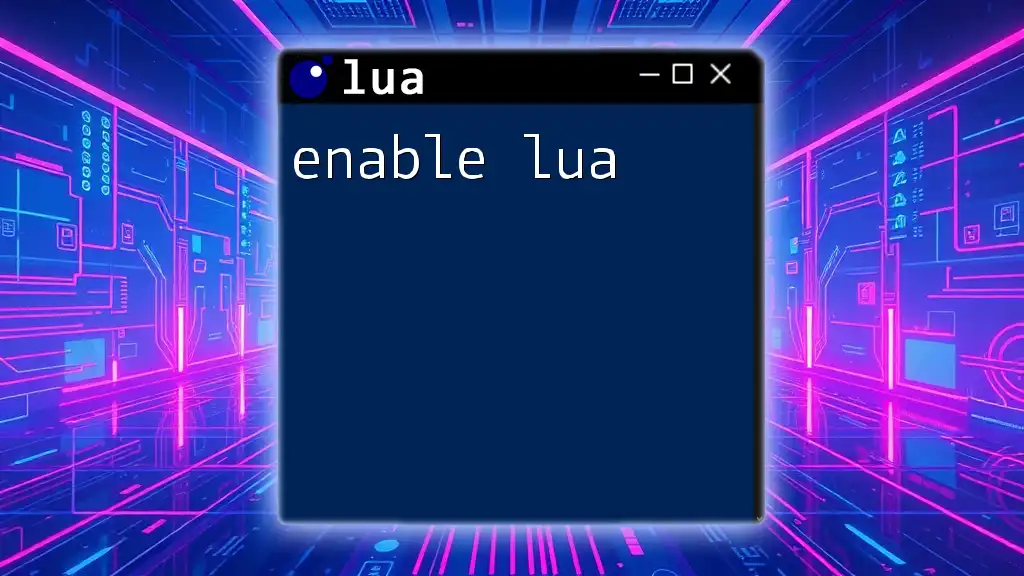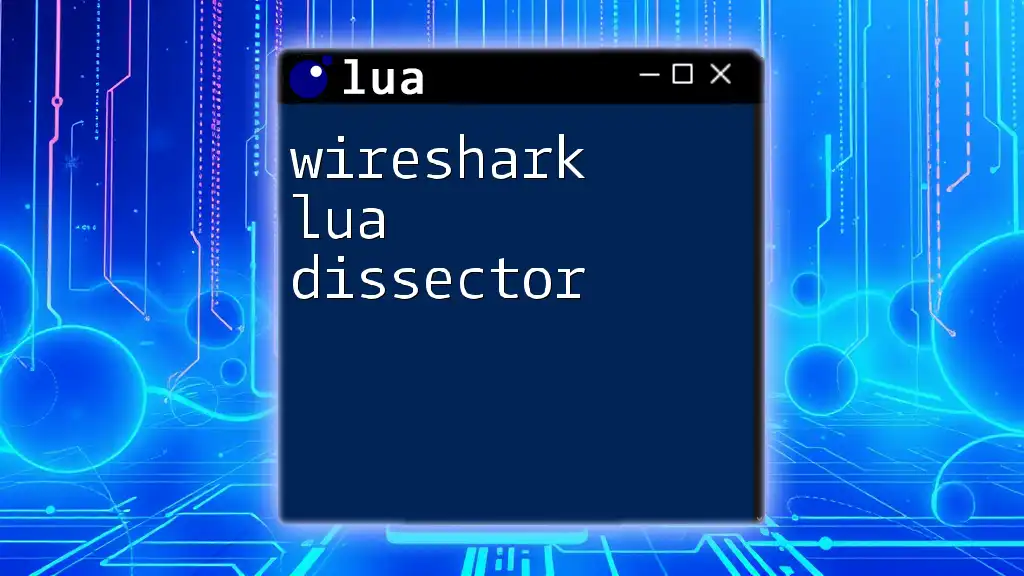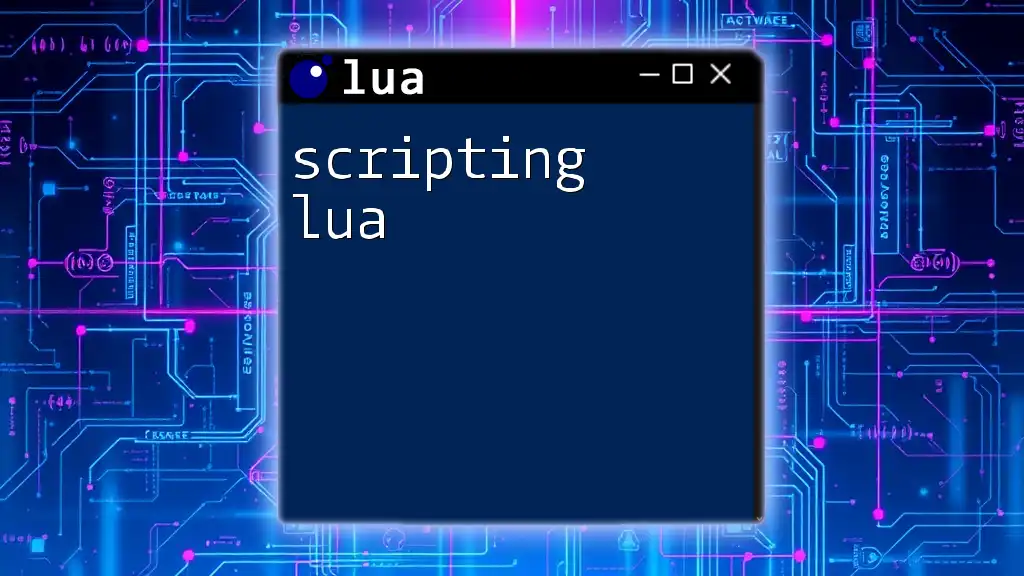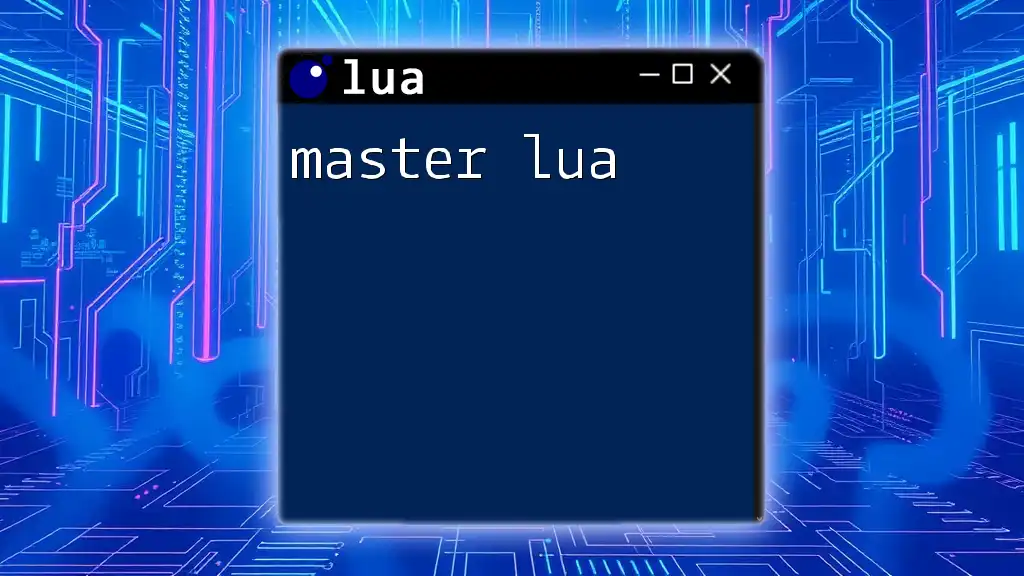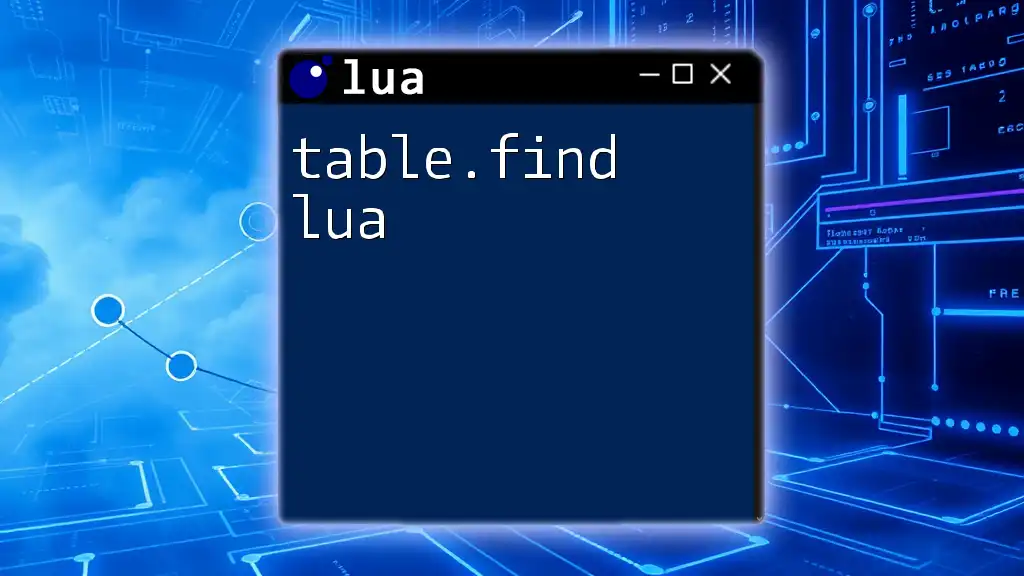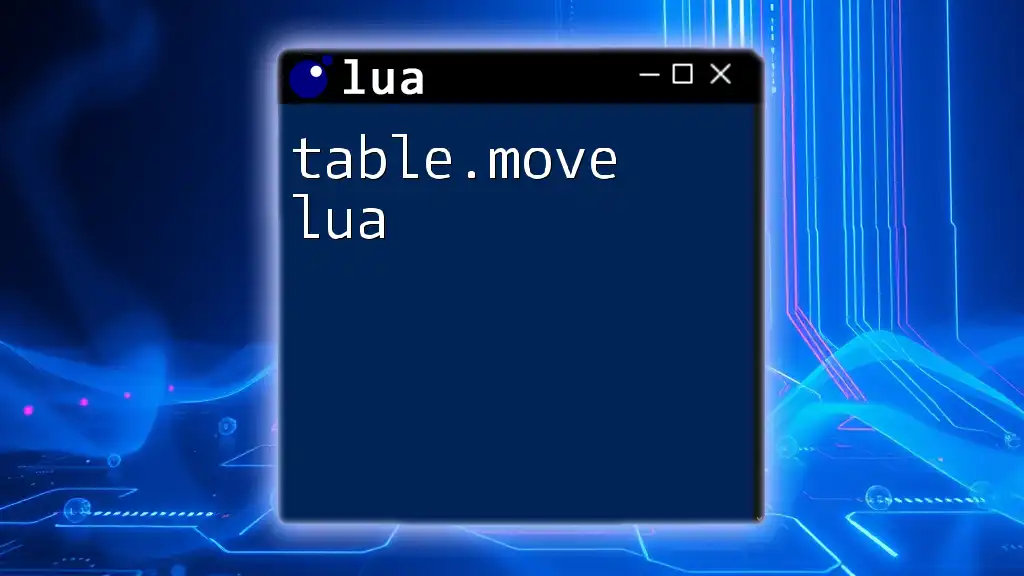The `require` function in Lua is used to load and execute modules, returning a value that can be used in your script.
Here’s a code snippet demonstrating its usage:
-- Assuming there is a module named 'mymodule.lua' in the same directory
local mymodule = require("mymodule")
-- Now you can access functions and variables from mymodule
mymodule.someFunction()
What is `require` in Lua?
Definition of `require`
The `require` function in Lua is a powerful tool that allows you to include external modules or libraries in your scripts. This function simplifies the process of managing code by promoting modular programming, where each module can encapsulate a specific set of functions or data. When you call `require("moduleName")`, Lua searches for the specified module, loads it, and returns its exported functions or variables for use in your program.
Benefits of Using `require`
When utilizing `require` in your Lua projects, you unlock several advantages:
-
Modular Programming and Code Organization: Breaking your code into modules helps keep your project organized and manageable. You can group related functions and variables together, which enhances readability and makes the codebase easier to navigate.
-
Code Reusability and Maintainability: Once you create a module, you can reuse it across multiple scripts. This not only saves development time but also makes maintenance easier since you can update the module in one location instead of in every instance where it’s used.
-
Enhancing Readability: By using `require`, you can make your main script cleaner and more focused. Instead of cluttering your code with all functions directly, you can simply call `require`, encapsulating complexities and making your core logic stand out.
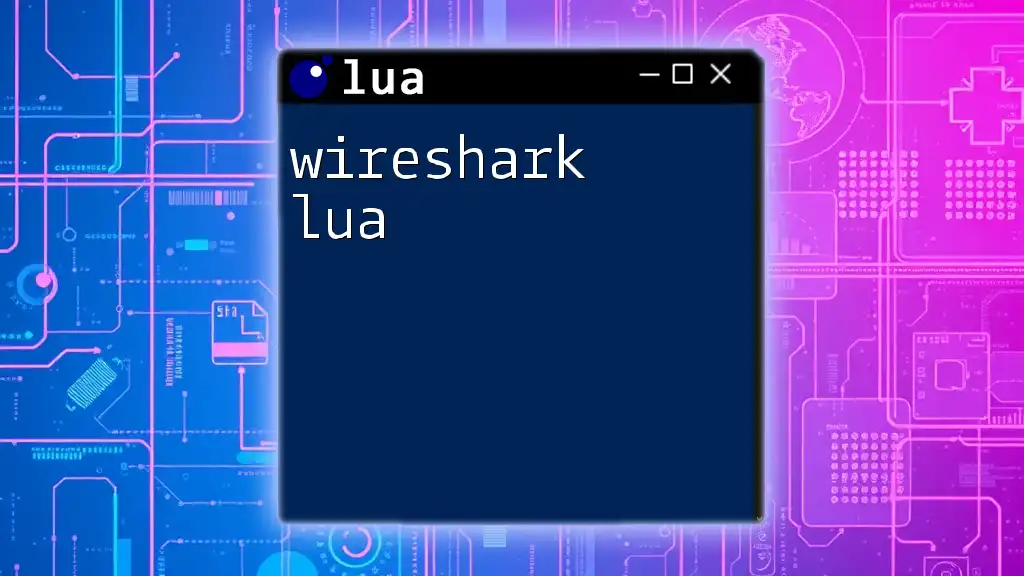
Understanding Lua Modules
What is a Lua Module?
A Lua module is essentially a Lua script that provides functions or data that can be reused in other scripts. Modules allow for encapsulation, meaning you can group related functionalities into a single file, making code management much simpler and cleaner.
How to Create a Module
Creating a simple Lua module involves defining functions and returning them as part of a table. For instance, you might want to create a module called `mathFunctions.lua` that includes basic arithmetic operations.
Here's an example of how you might structure this module:
-- mathFunctions.lua
local function add(a, b)
return a + b
end
local function subtract(a, b)
return a - b
end
return {
add = add,
subtract = subtract
}
In this example, we define two functions: `add` and `subtract`. By returning a table with these functions, other scripts can access them after requiring this module.
Understanding the Module Return Value
The return value of a module is crucial for its functionality. When you define a module, the return statement specifies what the script will expose to the calling code. For example, consider this code snippet:
local function multiply(a, b)
return a * b
end
return {
multiply = multiply
}
Here, the `multiply` function is made available to any script that requires this module, demonstrating how modules can effectively encapsulate functionality.
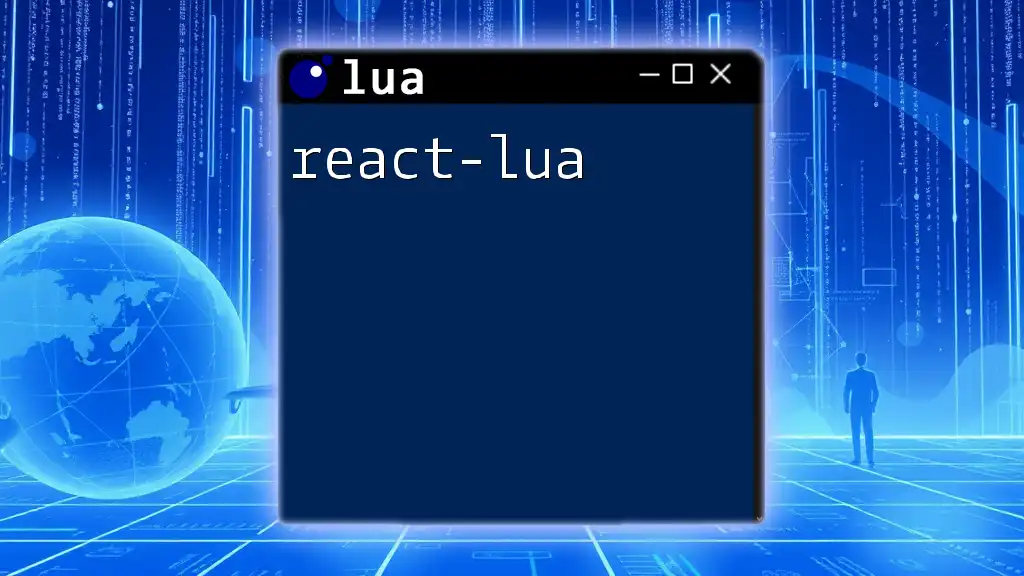
Using `require` to Load Modules
Basic Syntax of `require`
To load a module in Lua, the syntax is straightforward:
require("moduleName")
This command instructs Lua to look for a module named `moduleName` and execute it. It’s important to note that the module name doesn’t include the `.lua` extension.
Example of Using `require`
Once you have a module ready, you can load and use it in your script easily. Continuing with our `mathFunctions` example, here's how you would use it:
local mathFunctions = require("mathFunctions")
print(mathFunctions.add(2, 3)) -- Outputs: 5
In this example, we call `require("mathFunctions")`, which loads the module and assigns it to the variable `mathFunctions`. You can then access any function that the module exposes, such as `add`.
Error Handling with `require`
It's essential to consider how your program will handle situations where a module fails to load. Lua provides a way to handle errors gracefully using the `pcall` function.
Here's how you can implement that:
local success, mathFunctions = pcall(require, "mathFunctions")
if not success then
print("Module failed to load: " .. mathFunctions)
end
In this example, if the `require` call fails (for example, if the module doesn’t exist), `pcall` will capture the error, allowing you to manage it accordingly by outputting an error message.
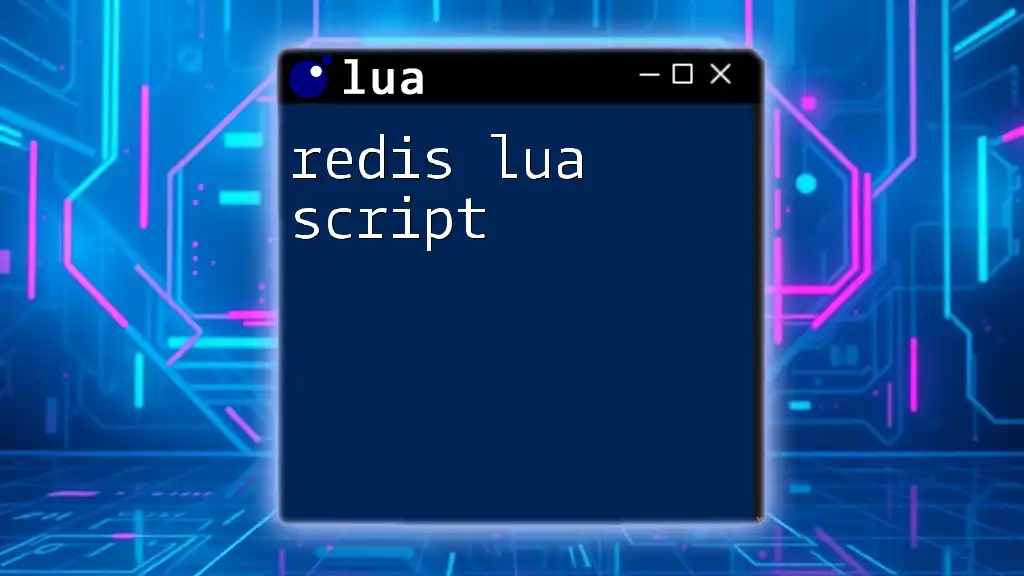
Module Paths in Lua
Default Search Paths
When you call `require`, Lua searches for the specified module in predefined paths. These paths determine where Lua looks for files, typically the current working directory and some standard library paths.
Overriding and Modifying Search Paths
If you want Lua to search in a custom directory for your modules, you can modify its search path using the `package.path` variable.
For instance, to include a directory named `./mymodules`, you can adjust the `package.path` like so:
package.path = package.path .. ";/path/to/mymodules/?.lua"
This modification ensures that when you call `require`, Lua will also check in the specified directory for modules.

Best Practices for Using `require`
Naming Conventions for Modules
Using clear and consistent naming conventions for modules enhances the clarity of your code. Module names should be descriptive of their purpose, following common practices like using lowercase letters and underscores to separate words (e.g., `math_functions`).
Organizing Your Modules
Structure your Lua project logically. Group related modules together in directories, making it easy to navigate through your code. For larger projects, consider creating a separate folder for each feature or section of the application.
Avoiding Global Namespace Pollution
When importing modules, you want to avoid conflicts with global variables. Always use `local` when defining functions or variables inside your modules. This practice keeps your module’s variables private and prevents accidental overrides.
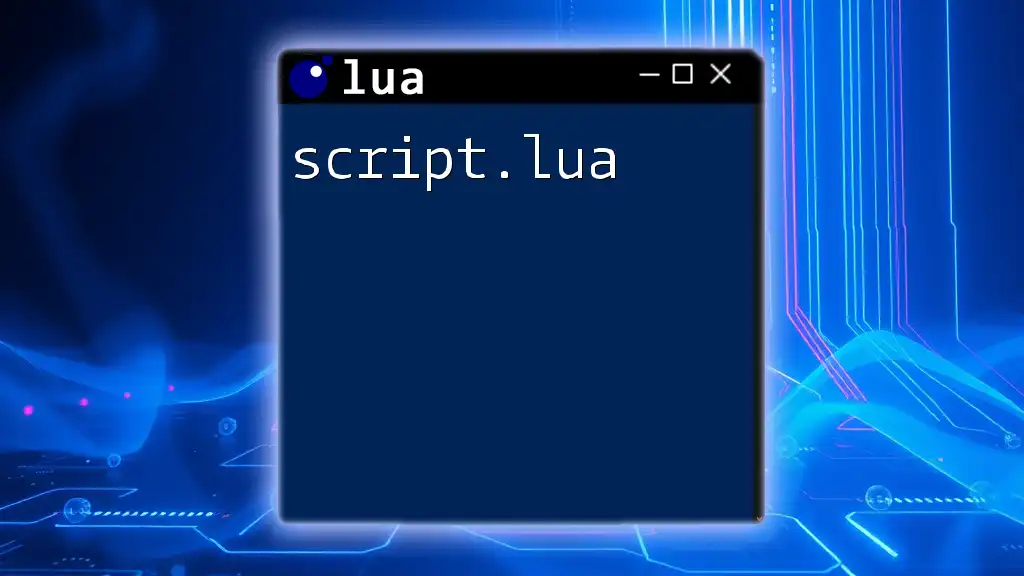
Conclusion
In conclusion, the `require` function is fundamental to effective Lua programming. By allowing you to load and manage modules effortlessly, it promotes better organization, reusability, and maintainability of code. By leveraging `require` to its fullest, you can enhance both your programming efficiency and code quality in Lua projects.
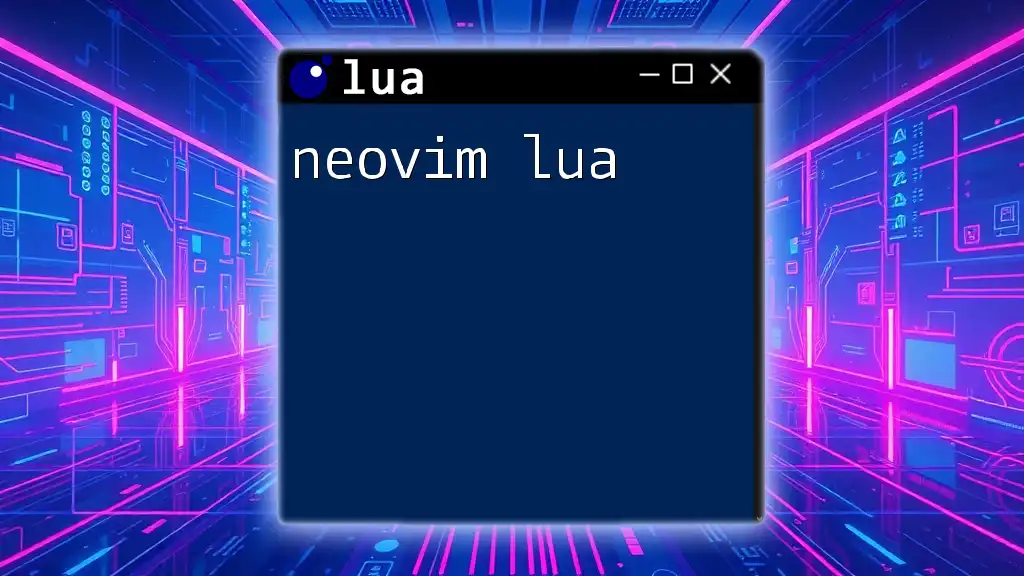
Additional Resources
If you're eager to learn more about using `require` and modular programming in Lua, I encourage exploring the official Lua documentation, engaging with community tutorials, and considering books that delve deeper into practical Lua programming techniques.
Call to Action
Start experimenting with `require` and create your own Lua modules! For a more comprehensive learning experience, explore our tailored Lua programming lessons designed to equip you with the skills you need to excel in this versatile language!

